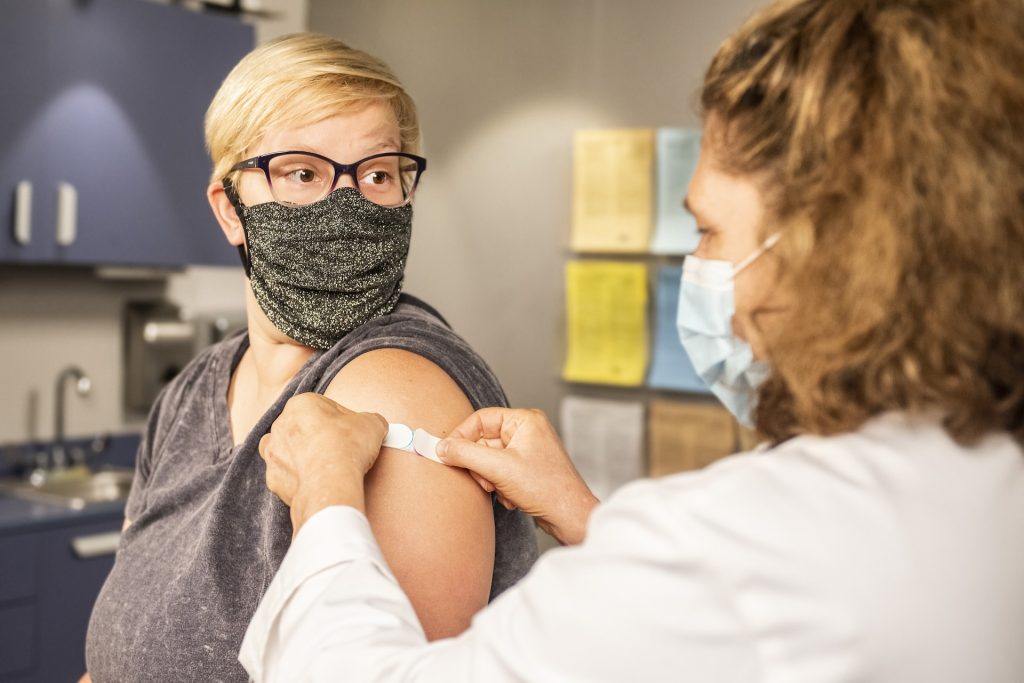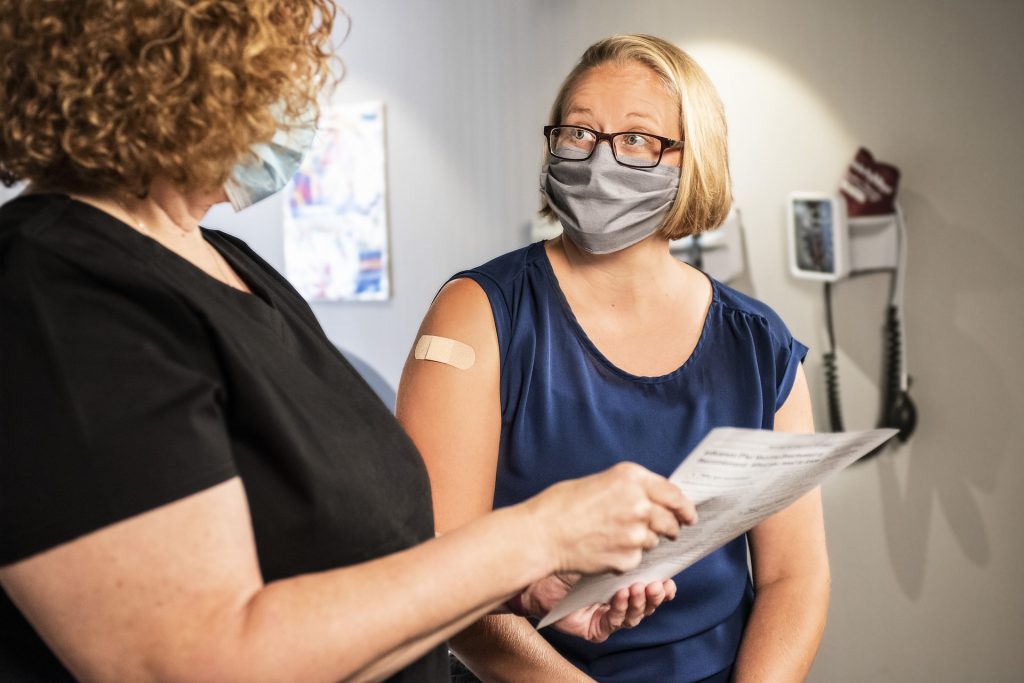Hundreds of thousands of children and adults worldwide get sick and die from vaccine-preventable illnesses each year. Some survive yet never recover, enduring complications that linger for many months or years. So, how do we protect ourselves and our loved ones? The answer: Get vaccinated and, if eligible, receive recommended doses and booster shots. Let’s get into the vaccine basics.
What are Vaccines?
Vaccines are medications that stimulate immune responses to protect people from diseases. Most are administered through intramuscular or subcutaneous injections, but some medicines are given through mouth drops and manufacturer-filled nasal sprayers. There are different types of vaccines, including inactivated vaccines, live-attenuated vaccines, viral vector vaccines, and toxoid vaccines.
How Do Vaccines Work?
When disease-causing microorganisms called pathogens enter our body, the immune system attacks them to defend us from infection. Pathogens like parasites, viruses, and bacteria are foreign invaders that spread through physical contact, inhalation, and ingestion. They reproduce the moment they enter our body, prompting our immune system to generate antibodies and destroy them.
The immune system comprises several organs, tissues, and antibodies, all working together to protect us from infection and illnesses. Since vaccines are made from weakened versions of the same pathogens that cause diseases, the immune system responds to them the same way it would when invaded by harmful microorganisms.
When you get vaccinated, it makes antibodies to fight pathogens. These antibodies stay in the bloodstream even after they destroy the germs, giving you immunity to future infections.

Immunity is achieved actively or passively. The former results from exposure to a disease or after vaccination. The latter happens when an individual receives antibodies from another person — for example, when a mother passes immunity to her baby through the placenta.
Active immunity takes a bit of time but lasts longer than passive immunity. Vaccination is regarded as the best way to achieve long-lasting immunity as it sparks immune responses without the risk of getting severe infections and complications.
What are the Benefits of Getting Vaccines?
Over and over again, science has confirmed that vaccines are the best way to stay healthy. Here are a few benefits of vaccination.
1. It Protects You From Illnesses
Vaccines prevent four to five million deaths yearly in all age groups for illnesses like influenza, measles, and tetanus. Although vaccines are not 100% effective, they have been proven to prevent severe illness, hospitalization, and death.
2. Vaccination Keeps Our Loved Ones Healthy
Many vaccine-preventable diseases are highly contagious. So, when you get sick, people close to you will most likely get infected, too. The thing is, some people aren’t eligible to get vaccinated due to specific health conditions.
This leads us to the critical concept of herd immunity, a form of protection that happens when most of the community population is immunized. Once we get vaccinated, and herd immunity is reached, we’ll be able to build immunity around our family members, friends, and neighbors.
3. It Gives Us Peace of Mind
Vaccinations offer peace of mind, helping us live a normal life after the anxiety and isolation we endured during the peak of the COVID-19 pandemic. But the next pandemic and outbreak can happen anytime, anywhere. Thus, it’s essential to stay up to date on the recommended doses and live a healthier lifestyle.

5 Common Vaccine Myths
The anti-vax movement is strong, but let’s separate fact from fiction. Vaccine hesitancy often starts with these common myths.
Myth 1: Vaccines Contain Toxic Ingredients
Vaccine ingredients vary per manufacturer, but they only use safe and effective ingredients that serve specific purposes. For example, antigens and adjuvants improve immune response, while stabilizers prevent contamination and make the vaccine last longer.
Other ingredients, like eggs, are used during production but are taken out afterward. Moreover, small amounts of aluminum are added to some vaccines as adjuvant. This ingredient is not dangerous and has been used and tested for safety for decades.
Myth 2: Vaccines Are Used to Microchip People
False information online claims vaccines are used to microchip people and even control their behavior. These reports are untrue, a mere conspiracy that surfaced even before COVID-19 vaccines were made available.
Vaccines are administered to fight illnesses, not to monitor people. Through a computerized database, the only details that will be tracked are the brand of the vaccine used and the facility where you got it.
Myth 3: Natural Immunity is Better than Vaccine-Acquired Immunity
Vaccine-acquired immunity is better than natural immunity because it provides long-lasting protection without the risks of infections and complications. For instance, COVID-19 natural immunity can wane in around 90 days, whereas antibodies from vaccines last longer. Vaccination also protects against multiple strains of illnesses and induces a stronger response.
Myth 4: Vaccines Cause Autism
Thimerosal, a mercury-based ingredient used to prevent fungal and bacterial growth in vaccines, has been falsely linked with autism. As a precautionary measure, this organic compound was eliminated in childhood vaccines in 2001.
Today, the only vaccine that uses it is the inactivated flu shot in multi-dose vials. Despite the controversy, several studies prove that low doses of thimerosal are safe and don’t cause autism.
Myth 5: Vaccines Overload Babies’ Immune Systems
Some parents delay their babies’ immunization schedules, thinking that increased vaccine exposure can overwhelm the system and cause infection. This is not true. Vaccines make infants’ and young children’s immune systems more robust. Infants as young as two months respond well to vaccines. Multiple shots will not overwhelm or weaken their bodies, as their cells are always replenished. Vaccination is crucial for children’s health.

Vaccines Save Lives
Despite vaccines’ life-saving benefits, global vaccine coverage has declined over the last few years. From 86% in 2019, coverage has dropped to 81% in 2021. There is no better time to convince people around you to get vaccinated. Immunizations are safe and can save those you care about the most!













